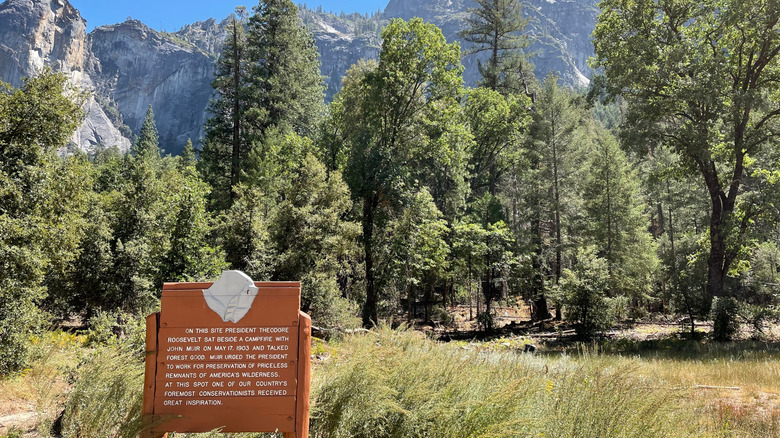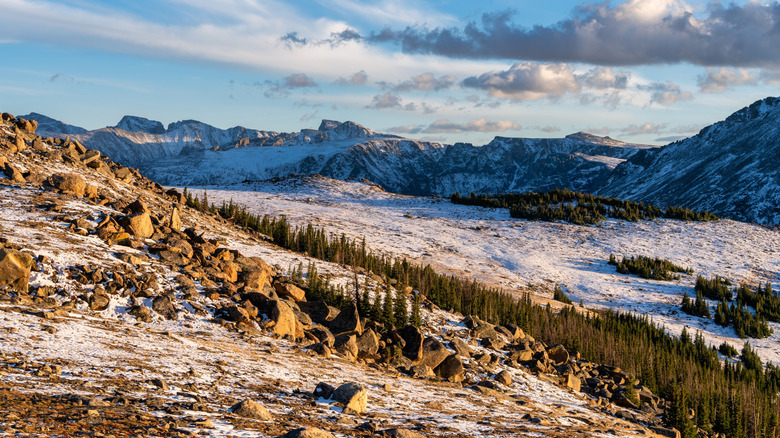The Unexpected Reason QR Codes Are Being Added To America's National Parks (And Why It's Causing A Stir)
People may visit national parks for recreation and scenery, but visitors are often met with a surprising amount of history. Harpers Ferry National Park, for example, is a thrilling destination for Civil War buffs, while many of the national parks, including Yellowstone, carry a complicated legacy of displacing Native Americans in order to be built. That history has negative implications, no doubt, and a campaign launched in May 2025 is attempting to reorient visitors' experiences of these parks away from the more unflattering aspects of the past. Among other National Park changes that might affect your visit, the U.S. Department of the Interior has required that all national parks include a sign with a QR code that links to a feedback form. The signage encourages visitors to report not only concerns about the park's safety and accuracy, but also any information that portrays American history in a negative light.
These QR codes (and their respective signage) began to be implemented after President Donald Trump, in an executive order, called for removing content that "inappropriately disparage[s] Americans past or living" and instead emphasizing "the achievements and progress of the American people or, with respect to natural features, the beauty, abundance, and grandeur of the American landscape." The signage is required to be posted at all 433 national parks (as well as other properties managed by land management Bureaus). The QR codes mean the public can report any content that's found to be "unrelated to the beauty, abundance, or grandeur," as the order says, which will then be removed and replaced. Many of the comments sent via the QR code's feedback form indicate public skepticism about this policy, though.
How visitors are responding to the QR codes in national parks
Most of the feedback sent through the QR code from national parks' visitors has been supportive of the parks, often praising the rangers and other employees, according to leaked comments reported on by SFGate. Other comments outright rebuked the Trump Administration's order. "This felonious Administration is the very definition of un-American. The parks belong to us, the people... Rangers, have a lovely day. You are appreciated," read one comment submitted at multiple national parks. Some commenters at parks like Rocky Mountains National Park, home to one of the world's most beautiful hikes, expressed a desire to see more information related to Indigenous people who once lived there — content that might be perceived as "negative," since Indigenous communities were often violently removed to create the parks.
While the request to report information that showcases perceived negative aspects of American history has mostly just produced backlash or unrelated commentary, there is another part of the feedback system that's proving more fruitful: reporting inaccuracies or safety issues. According to NPR, several comments have led to actual changes in the parks. One left at Capitol Reef National Park in Utah, for example, pointed out that a postcard souvenir mislabeled a landmark nearby, which has since been corrected. Despite the debate over historical content, the QR codes do allow visitors to help maintain the parks, whether that be correcting souvenirs or updating wildlife warnings.

